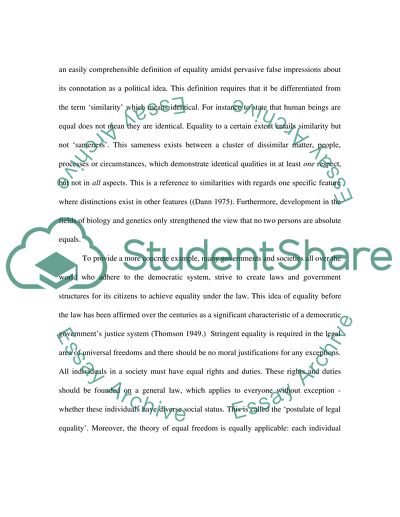Cite this document
(“Equality in Just Society Essay Example | Topics and Well Written Essays - 1500 words”, n.d.)
Retrieved from https://studentshare.org/sociology/1503344-equality-in-just-society
Retrieved from https://studentshare.org/sociology/1503344-equality-in-just-society
(Equality in Just Society Essay Example | Topics and Well Written Essays - 1500 Words)
https://studentshare.org/sociology/1503344-equality-in-just-society.
https://studentshare.org/sociology/1503344-equality-in-just-society.
“Equality in Just Society Essay Example | Topics and Well Written Essays - 1500 Words”, n.d. https://studentshare.org/sociology/1503344-equality-in-just-society.


